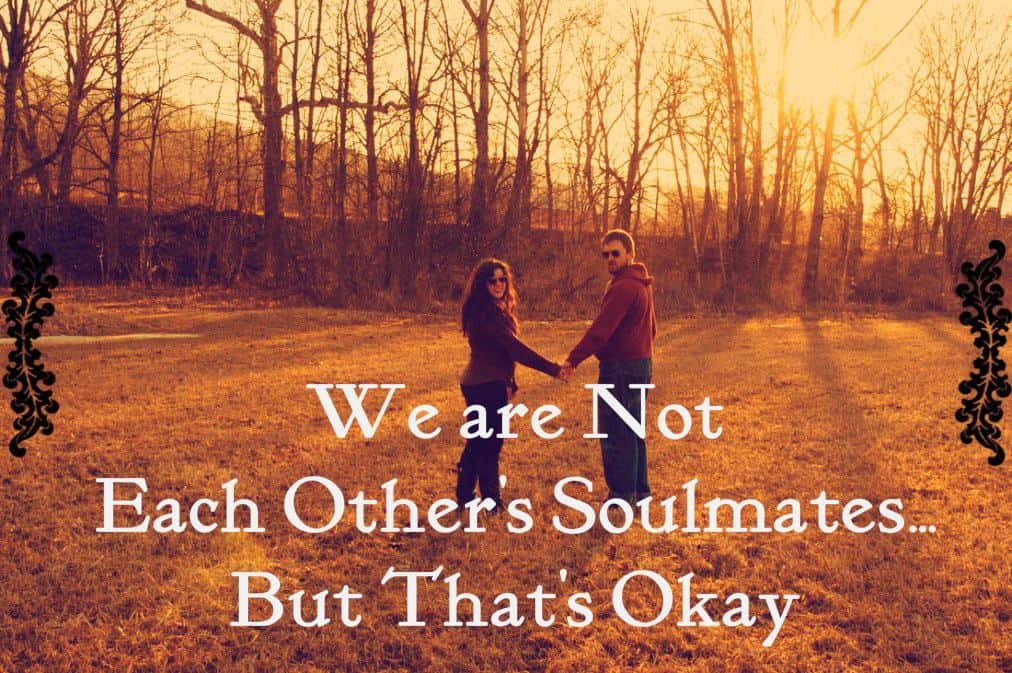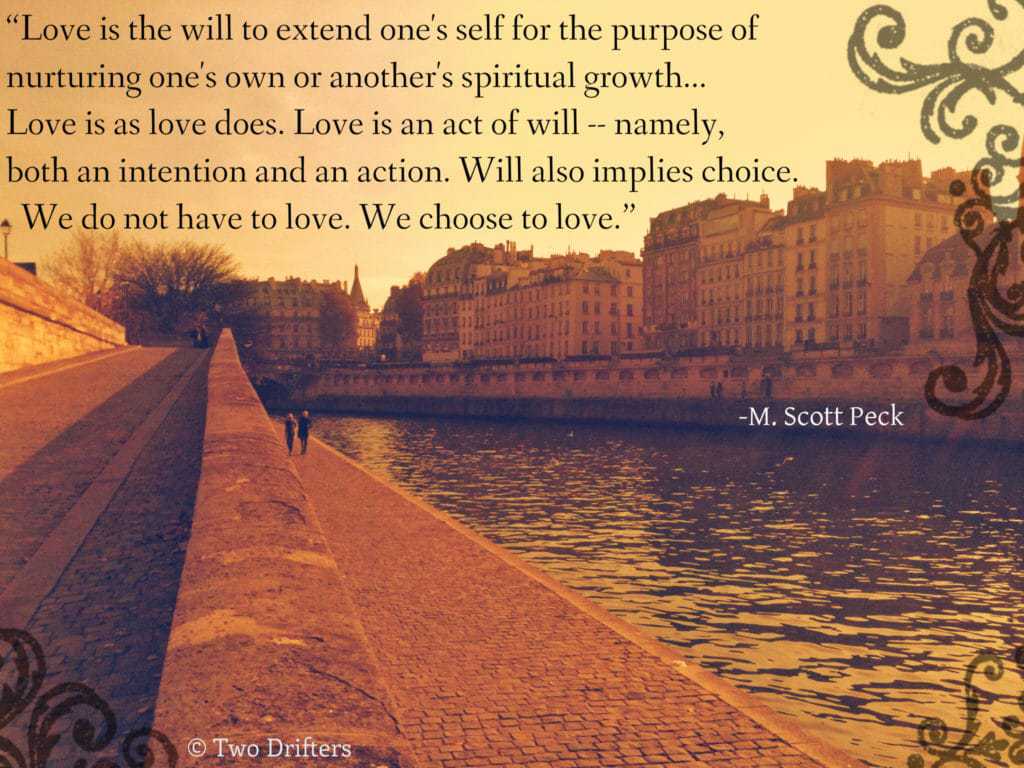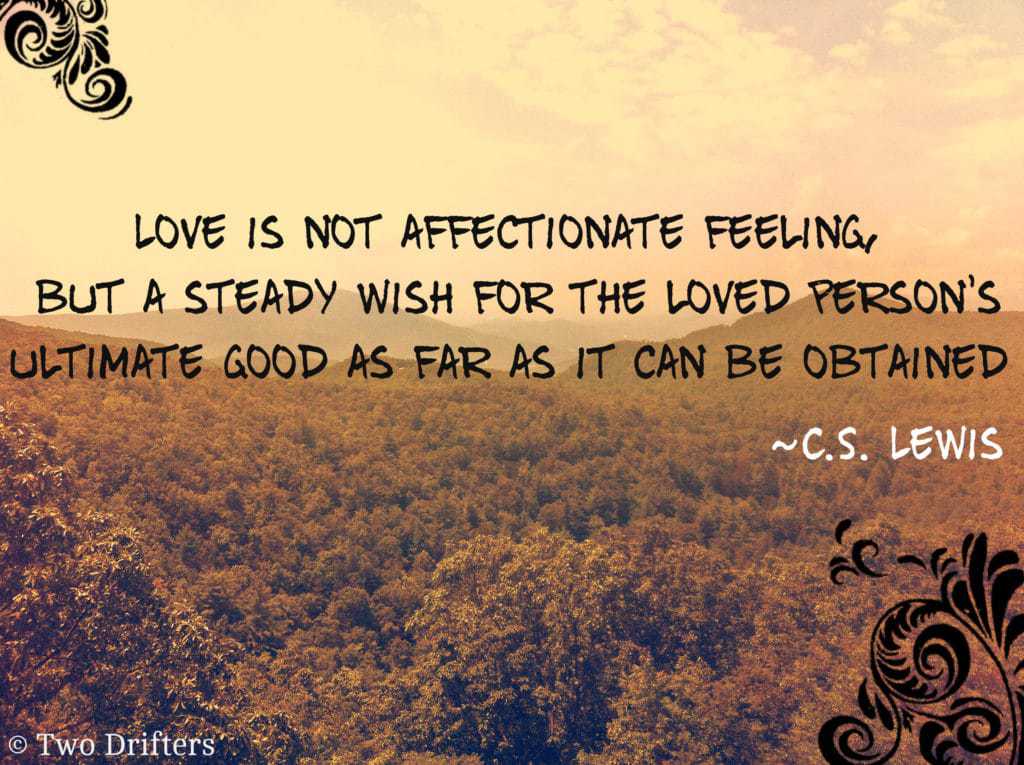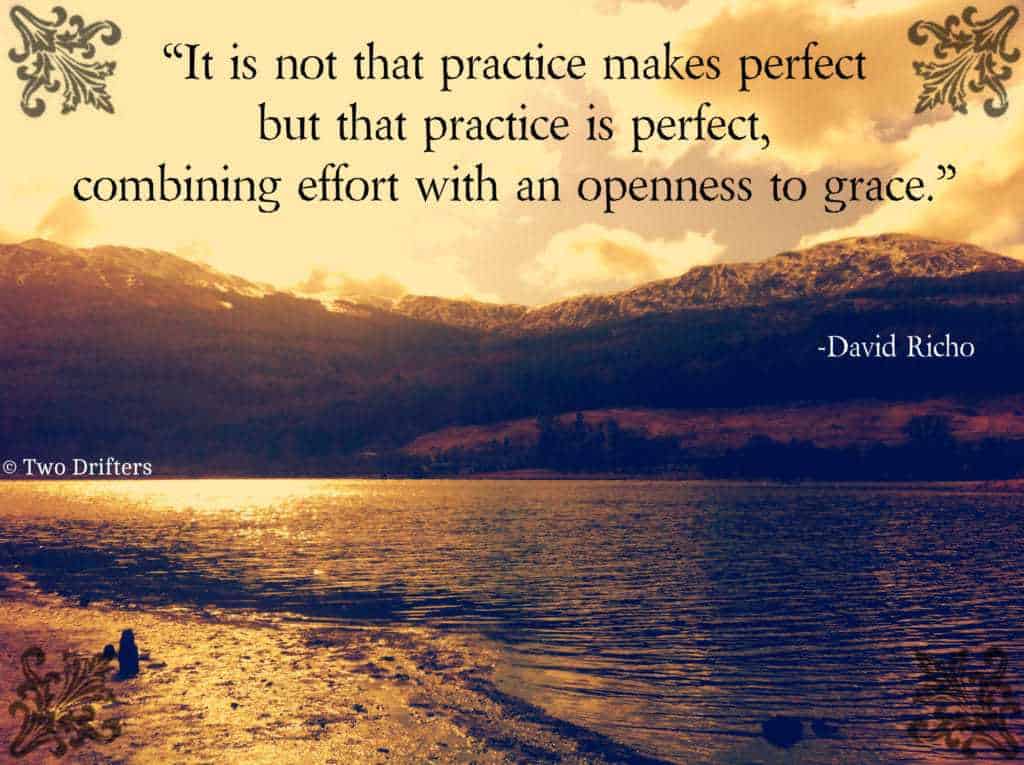This post may contain affiliate links. Read our disclosure page for full details.
The soulmates myth.
We don’t think that soulmates exist. And in fact, we don’t say we are one another’s soulmates. We’re not soulmates!
This might seem like a radical statement coming from two people who love one another deeply, but Nathan and I agree that we are not each other’s soulmates.
Ideas like soulmates, true love, and “the one,” are very much ingrained in our society. But are these popular notions the only way to view love?
This is a bold statement to make, but I am committed to learning and growing in love, and know this is a vital part of becoming my best self. I know, too, that my approach to this subject is slightly unconventional and does not represent absolute fact. I fully realize that love is unique to each individual. Love is not exactly the same for any two people and will never be. (See our guide on relationship advice for couples).
But what I’m suggesting is that while there may be no “right” way to love, I do feel there are ideals that have grown so entrenched in our world as to become harmful. I often think that the concept of soulmates is not one that helps us really grow in love. What I am saying may appear radical given the commonly accepted fairy-tale type of romance our culture heralds as the epitome of love, but I think my opinions reflect a growing transformation in our collective understanding of what love is and could be. I think some people are beginning to find those romantic ideals claustrophobic and limiting, especially those who suffer from anxiety.
So even if this post sits uncomfortably with many, if there are even a few people out there who find this gives them comfort and hope and a new outlook on what it means to love another person, then I’m glad to have spoken.
Dissecting the Notion of Soulmates
As a spiritual and sentimental person, I think the possibility of soulmates is a beautiful idea. It’s reassuring to believe there is one person out there for you who will complete you and make you whole–your other half, if you will. But to me, this thought is a little frightening. It causes one to wonder “what if I never find my soulmate?” In a planet of just over 7 billion inhabitants, it’s not a fear that’s unfounded. To boggle your mind with just how many people there are on earth at this moment, check out this real-time world population clock.
Never finding the one person you’re meant to be with? That’s a scary thought. But what about the other side of the coin? What if you do, in fact, meet your soulmate? Wouldn’t you feel absolutely terrified that they were going to leave you or worry daily that something would happen to them? (Side note: I feel that fear of loss even without believing Nathan is my soulmate.) My point is not to scare you with the inevitability of death, but rather to showcase that a belief in soulmates might, in some, generate more anxiety.
Personally, I believe you could have successful, fulfilling relationships with a number of people. The factors affecting this include compatibility, shared interests, attraction, and most of all, choice. Because the heart of this entire attitude is that love is a choice.
Some Truths About Real Love
We often speak primarily in relation to ourselves when it comes to love. Our love is expressed in our own personal feelings–how the other person makes us feel. This is quite normal. In fact, our human ego-based response is to seek what makes us feel fulfilled. The problem with this is that, at some point, another person will cease to make us happy. (I’d also argue that the true responsibility of happiness comes from within and through loving ourselves, but that’s another topic entirely!)
This is not the other person’s fault. It’s simply that they are human. In long-term relationships, after the rose-colored glasses of affection come off (the “falling in love” phase) we begin to see our partner’s flaws, faults, and annoyances. They may no longer excite us. We might grow bored. This is the point at which many relationships end, as one or both partners decides they are no longer getting what they want and will seek it elsewhere. Essentially, when the thrill of amour starts to fade, we move on in search of novelty and excitement.
To do this might be a huge mistake. Because it’s at such a point, I believe, when real love begins. When the loving feelings ebb, this is the time when loving action steps in. This is when love becomes a choice, and perhaps when it becomes truly real.
It could (and will) take me an entire lifetime to learn about love. And I’m no different from anybody else. There’s more to discover about what it means to love than we will ever be able to fully grasp. In many ways love is an indescribable, sometimes mystical force that can be powerful, consuming, and untouchable. But in other ways, more tangible ways, love is simple, warm, and involves effort, and perhaps maybe even great risk.
Love is scary.
When we’re with someone who genuinely cares for us and commits to us, warts and all, we experience tremendous vulnerability. In fact, many, many people resist the open arms of love. Why? So many reasons. Fear of loss, fear of rejection, fear of abandonment, fear of engulfment. And often, the stronger our connection is to another person, the greater our fear–more insecurities and deeper issues are allowed to rise to the surface. Sometimes love can seem to threaten our independence, our sense of self. But getting over such a hurdle leads to magnificent, genuine connection.
Love persists even when the feeling doesn’t.
You’re not always going to feel love. In long-term relationships and marriage, you’ll see all dimensions of a person–their dark side and their light side. Some aspects you’re not going to like very much. They might be the little, silly things, like the way he dries his wet hands on his clothing, or the way she leaves laundry in piles around the house. In conflict, you may feel anger and resentment. Where is the love then?
It’s important to realize that the emotions and feelings associated with love may come and go…but this is NOT A SIGN that love is gone. This is when loving action is required of you. When it comes to the people we care about, we often have to act in a loving way even when its the last thing we feel like doing. This unselfish giving is how love persists and thrives, even during its low points. Because these low points inevitably do happen. It is at such a moment when many people decide to run for the hills, thinking that love isn’t worth it if they’re no longer “feeling it.” Nothing could be further from the truth.
Anne Morrow Lindbergh wrote about this experience beautifully in her well-known book Gift from the SeaGift From the Sea:
“When you love someone, you do not love them all the time, in exactly the same way, from moment to moment. It is an impossibility. It is even a lie to pretend to. And yet this is exactly what most of us demand. We have so little faith in the ebb and flow of life, of love, of relationships. We leap at the flow of the tide and resist in terror its ebb. We are afraid it will never return. We insist on permanency, on duration, on continuity; when the only continuity possible, in life as in love, is in growth, in fluidity – in freedom, in the sense that the dancers are free, barely touching as they pass, but partners in the same pattern.
The only real security is not in owning or possessing, not in demanding or expecting, not in hoping, even. Security in a relationship lies neither in looking back to what was in nostalgia, nor forward to what it might be in dread or anticipation, but living in the present relationship and accepting it as it is now. Relationships must be like islands, one must accept them for what they are here and now, within their limits – islands, surrounded and interrupted by the sea, and continually visited and abandoned by the tides.”
Source: Goodreads
Love is about growth–your own and your partner’s.
Real, genuine love means putting the other person first. And this action, when continued, will bring about transformation in us. This is hard work. It involves placing the other person’s happiness and wellbeing above any of our momentary, fleeting feelings. It may even require us to act lovingly when we don’t feel at the moment that our own needs are being met. Indeed, each time we choose love over fear, defense, or avoidance, we grow and learn. We become more mature, perhaps better, people. Relationships serve as a proving ground for intense personal growth. (Some might even venture to call love the ultimate crucible.) In the often difficult situations in which love places us, we are absolutely tested and challenged to emerge more loving, compassionate, and unselfish beings. I’d argue that’s the entire work of our lives: learning to love. Ourselves, our partners, the world.
An Alternative To Soulmates
Ok, maybe you’re unwilling to give up the idea of soulmates. I get that. It’s definitely an attractive concept, and maybe you think you’ve already found your soulmate. But what if we simply redefined what the term soulmate means?
What if a soulmate wasn’t the person you were destined to be with, but the one person you chose to make a part of your life forever?
What if a soulmate wasn’t a person who completed you, but rather one who challenged you and encouraged you and forced you to grow into the best version of yourself?
As Teilhard De Chardin said,
The most empowering relationships are those in which each partner lifts the other to a higher possession of their own being.
I revel in the idea of viewing a soulmate in this way. As a person you’ve chosen to commit to and whom you take action to love each and every day. If that’s the reality of soulmates, then I suppose Nathan and I are one another’s. We believe wholeheartedly in the knowledge that love requires action and choice. We know relationships are effort and work, and sometimes struggle. We strive to put one another’s needs above our own and quell our selfish habits and fear-based defenses when they pop up. We accept that neither one of us is perfect, and never will be, but we love despite–and perhaps because of–this.
PS: Check out David Richo’s amazing book How to Be an Adult in Relationships. It has been the best resource I’ve ever found for healthy, authentic relationships.
If you’re seeking relationship help, we also recommend the Love at First Fight program, offering personalized guidance to help you heal a struggling relationship.
x Amy
Note: Some of the products included above are affiliate links. That means if you buy one of the products, we’ll receive a modest portion of your purchase, helping to keep Two Drifters up and running!
Pin this post to save for later!

Amy Hartle is the author of Do You Love Me? How To Stop Seeking Reassurance in Relationships, a book on reassurance seeking and relationship anxiety. Both her book and this blog are born of personal experience; Amy shares expert relationship advice from the lessons learned during her own 10+ years with her husband, as well as couples travel tips and romantic getaway recommendations, all gleaned while traveling the world together.






